by Derek Davison
Iranian President Hassan Rouhani’s recently concluded trip to New York to address the United Nations General Assembly offered signals that Iran’s complex political establishment is, at least right now, quietly going along with the push toward an internationally agreed deal over Iran’s nuclear program. This was the message of two experts on Iran, independent scholar Farideh Farhi, and business expert Bijan Khajehpour, who offered their assessment of Rouhani’s visit in a Sept. 29 discussion sponsored by the Wilson Center.
The messaging around Rouhani’s UN trip began before he left Iran, with a two-hour meeting between the Iranian President and Supreme Leader Ali Khamenei that Farhi, a Lobelog contributor, characterized as “a concerted, public effort to suggest unity,” adding that “the public representation of the two executives of Iran’s political system…consulting and strategizing is a powerful signal regarding unity at the top, at least on the particulars of the nuclear issue.” This show of unity, she argued, was both an effort to show support for the negotiations and to lay the groundwork for a domestic narrative that would blame excessive US demands, rather than internal political dissention, if the negotiations fail to reach an agreement
In fact, Farhi pointed out that the recent public displays of a harmonious Iranian leadership actually began when Khamenei was hospitalized for prostate surgery in early September. The “unprecedented” coverage of the Supreme Leader’s hospital stay included interviews with Khamenei himself both before and after his surgery as well as a parade of public hospital visits from high-profile moderate political figures like Rouhani and Expediency Council Chairman Hashemi Rafsanjani, as well as conservatives including judiciary chief Sadeq Larijani and Guardian Council Secretary Ahmad Jannati.
Farhi also described the high level of optimism over the prospects of a final deal that she encountered while in Iran, saying that she “has yet to meet a person [in Iran] who says that there will not be a nuclear deal.” She attributed this optimism to “the honest belief, on the part of the Iranian population at least, that a systemic decision has been made to resolve this issue, and since that systemic decision has been made, it is going to happen one way or another.”
The fact that Rouhani made the trip at all could be taken as a sign that he believes a deal is possible. “He would not have come to New York City if he did not think that an extra effort to push for a resolution to the Iranian nuclear dossier was worth a try,” said Farhi, who teaches at the University of Hawaii. She noted that the threat posed by the group that calls itself the Islamic State “has given Tehran yet another boost in its effort to try to convince the United States to move away from policies that in the Iranian discourse are identified as an American thinking that relies on force and pressure to change Iranian policy.” Rouhani’s UNGA speech envisioned that once the nuclear issue was resolved, “an entirely different environment would emerge for cooperation at regional and international levels.”
Yet the lack of progress in the talks held on the sidelines of last week’s UNGA may have changed Rouhani’s mind, and his final press conference before returning to Iran struck a relatively pessimistic tone. He noted that “time is short” and that whatever progress was made at the UN, the steps taken “haven’t been significant.”
For his part, Khajehpour suggested that Rouhani, who was elected with the triple mandate of negotiating a nuclear deal, improving Iran’s international relations, and turning the economy around, has begun to shift the emphasis from the nuclear portfolio to Iran’s economic improvement, touting, for example, a significant turnaround in Iran’s GDP growth since he took office last year. He also cited a recently signed trade accord between Russia and Iran, which Iranian Oil Minister Bijan Namdar Zanganeh claims will “boost current bilateral trade from around $1.5 billion annually by tenfold over the next two years,” as a sign that Iran is not waiting for the conclusion of the nuclear talks to improve its international standing. Khajehpour argued that closer ties with Russia accomplish a number of Iranian aims: they offer Iran a “plan B” if the talks fail, they give Russia an incentive not to block a deal with the P5+1 (the five permanent members of the UN Security Council plus Germany), they show the rest of the powers that Iran is not desperate to reach a deal, and they quiet internal critics who fear that a nuclear deal would leave Iran dependent on the West for its continued economic development.
Regardless of the eventual outcome of the nuclear talks, Farhi argued that Rouhani and Khamenei need to work together—Rouhani because he will have to find a way to advance his presidential agenda at least through the 2017 elections, and Khamenei because he will need the support of Rouhani’s team of technocrats in managing Iran’s economy (if only to share the blame should it begin to decline again).
Farhi countered the suggestion that Rouhani may find himself marginalized, as reformist president Mohammed Khatami was in his second term (2001-05), in part by arguing that reformists have learned from Khatami’s experience and will temper both their demands for and criticism of Rouhani’s performance. She also predicted that Iran must “return to an internal discussion, negotiation, and conflict about how to repair the wounds that were caused by the 2009 elections.” According to Farhi, the process of “recreating a state that is better reflective of the diverse population makeup of Iran, and the sentiments of the country, and ultimately establishing a less chaotic political and electoral process will have to begin, and may already have begun.”

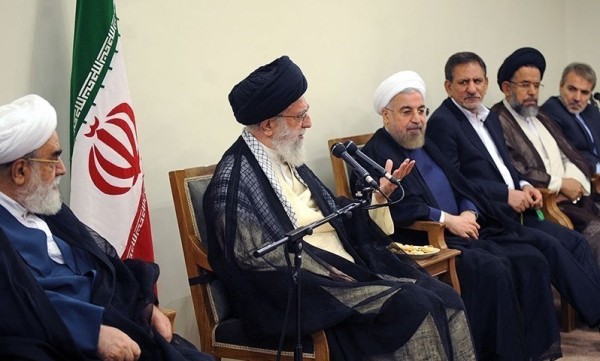
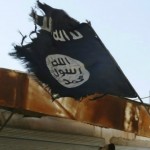
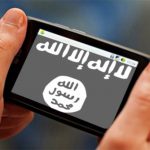
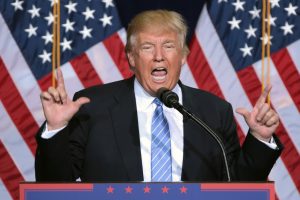
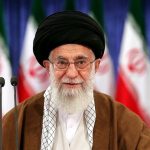
Did Iran in effect dig a hole too deep to get out of? Sadly, this apparently is what obtains.
Again nuclear is a red herring for both the Western and Iranian press. Iran is 10 years away from a nuclear weapon which would, when complete be of ancient vintage and completely surrounded by state of the art anti missile bases.
The REAL negotiations are about Cold War 2, which Obama has declared against Moscow and Beijing. Is Tehran going to go over to this newly forming anti Western axis, sell its oil in Renminbi, or is it going to be non- aligned?
As with Non Aligned nations in the past Cold War, Tehran will be listening to offers from all sides and will playing to maximize its own position.
A huge part of these negotiations will also be who gets what in the Levant, as both Washington and Iran have been jockeying for control there for years.
The USA is trying to lure Iran to participate actively in the coalition against ISIS, by using the nuclear deal as an incentive.
Yet Iran prefers not to intervene in a Sunnis vs Sunnis war in Syria and Iraq. It doesn’t want to appear taking a Shia position against the Sunnis. It is better to let them sort it out among themselves and with the West.
If the repression against ISIS and other Islamists takes its toll of civilians and last too long, there will be strong criticisms against the coalition and principally against Saudi Arabia and the USA.
Iran ( like Turkey) want to stay out of that.
With the continuing name change in what group is doing what, as well as who backs what group, if Iran stays on the side lines, then it won’t be in line to take the blame, though I’m sure it will come in for criticism for not taking the bait.